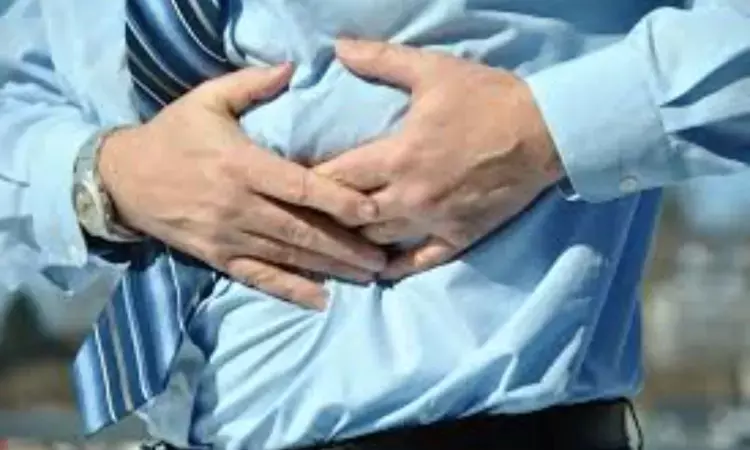- Home
- Medical news & Guidelines
- Anesthesiology
- Cardiology and CTVS
- Critical Care
- Dentistry
- Dermatology
- Diabetes and Endocrinology
- ENT
- Gastroenterology
- Medicine
- Nephrology
- Neurology
- Obstretics-Gynaecology
- Oncology
- Ophthalmology
- Orthopaedics
- Pediatrics-Neonatology
- Psychiatry
- Pulmonology
- Radiology
- Surgery
- Urology
- Laboratory Medicine
- Diet
- Nursing
- Paramedical
- Physiotherapy
- Health news
- Fact Check
- Bone Health Fact Check
- Brain Health Fact Check
- Cancer Related Fact Check
- Child Care Fact Check
- Dental and oral health fact check
- Diabetes and metabolic health fact check
- Diet and Nutrition Fact Check
- Eye and ENT Care Fact Check
- Fitness fact check
- Gut health fact check
- Heart health fact check
- Kidney health fact check
- Medical education fact check
- Men's health fact check
- Respiratory fact check
- Skin and hair care fact check
- Vaccine and Immunization fact check
- Women's health fact check
- AYUSH
- State News
- Andaman and Nicobar Islands
- Andhra Pradesh
- Arunachal Pradesh
- Assam
- Bihar
- Chandigarh
- Chattisgarh
- Dadra and Nagar Haveli
- Daman and Diu
- Delhi
- Goa
- Gujarat
- Haryana
- Himachal Pradesh
- Jammu & Kashmir
- Jharkhand
- Karnataka
- Kerala
- Ladakh
- Lakshadweep
- Madhya Pradesh
- Maharashtra
- Manipur
- Meghalaya
- Mizoram
- Nagaland
- Odisha
- Puducherry
- Punjab
- Rajasthan
- Sikkim
- Tamil Nadu
- Telangana
- Tripura
- Uttar Pradesh
- Uttrakhand
- West Bengal
- Medical Education
- Industry
Fibrosis-4 stage of liver fibrosis linked with CV events in ACS patients regardless of diabetes status

China: Liver fibrosis staged by the Fibrosis-4 (FIB-4) index corresponds to an increased risk of myocardial infarction, MACCE, and mortality in acute coronary syndrome (ACS) patients who underwent PCI independent of diabetes status, a recent study has shown. However, it was not associated with stroke and bleeding events.
The findings, published in Diabetes Research and Clinical Practice, suggest that FIB-4 may be helpful in risk stratification of ACS patients independent of the presence or absence of diabetes.
Jingjing Song and a research team from China and colleagues conducted the study to examine the effect of liver fibrosis, assessed by the Fibrosis-4 index, on cardiovascular events in patients with the acute coronary syndrome with and without type 2 diabetes mellitus (T2DM).
For this purpose, the researchers analyzed 6563 ACS patients undergoing PCI. The participants were divided into three groups based on the literature-based FIB-4 cut-offs: < 1.45, 1.45-3.25, and ≥3.25.
The authors reported the following findings:
- During the median 2.4-year follow-up, 270 major adverse cardiac and cerebrovascular events and 194 major bleeding were recorded.
- Intermediate or high FIB-4 scores were significantly associated with an elevated risk of MACCE, mortality, and myocardial infarction but not related to ischemic stroke and major bleeding.
- Further restricted cubic spline analysis showed that FIB-4 as a continuous variable was positively associated with increased adjusted risk of MACCE.
- The results were consistent in subgroups with and without type 2 diabetes.
Liver fibrosis assessed by the FIB-4 index was shown to be linked with myocardial infarction, mortality, and MACCE but not bleeding events and stroke in acute coronary syndrome patients, regardless of type 2 diabetes status.
"The FIB-4 index is useful to improve risk stratification for ischemic cardiac events in ACS patients," the authors wrote. "The study prompted liver fibrosis screening with non-invasive indices in ACS patients with or without type 2 diabetes to identify high-risk patients and help decision-making in clinical practice."
Reference:
The study titled "Fibrosis-4 stage of liver fibrosis predicts cardiovascular outcomes in acute coronary syndrome patients with and without type 2 diabetes mellitus" was published in Diabetes Research and Clinical Practice. DOI: https://doi.org/10.1016/j.diabres.2022.110206
Dr Kamal Kant Kohli-MBBS, DTCD- a chest specialist with more than 30 years of practice and a flair for writing clinical articles, Dr Kamal Kant Kohli joined Medical Dialogues as a Chief Editor of Medical News. Besides writing articles, as an editor, he proofreads and verifies all the medical content published on Medical Dialogues including those coming from journals, studies,medical conferences,guidelines etc. Email: drkohli@medicaldialogues.in. Contact no. 011-43720751


